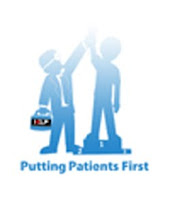

Blood Pressure Basics
When your blood Pressure exceeds an upper limit for an extended time, you have high blood pressure i.e.hypertension
In adults, high blood pressure is defined as a systolic pressure of 140 or higher,or a diastolic pressure of 90 or higher.
An elevated blood pressure indicates that the heart is working harder than normal-putting both it and the arteries under a greater strain
Uncontrolled high blood pressure can lead to : Fatal and non fatal stroke,
* Congestive heart failure
* Impaired vision or blindness
* Kidney failure
* And other causes of death
* You can't tell when your blood pressure is too high, i.e. high blood pressure usually has no symptoms.The only way to know if you have high blood pressure is to get it checked.
* One high blood pressure reading does not necessarily mean you have high blood pressure.Several readings need to be taken over a period of time.
* Some people have high blood pressure readings only in the doctor's office, and have consistently normal reading elsewhere.This is known as white coat hypertension. and probably does not need to be treated.
* If the top number ( systolic ) consistently exceeds 140 or if the bottom number ( Diastolic ) consistently exceeds 90, you should be working with your physician on lowering your blood pressure
High Blood Pressure Risk Factors
Overweight : Obesity and high blood pressure are closely associated.Very often people can reduce their blood pressure simply by losing a few pounds through diet and aerobic exercise
Alcohol : Too much alcohol commonly leads to high blood pressure.If you drink, limit drinks to one a day
Salt :People who have high blood pressure and who find that sodium affects their blood pressure should limit their sodium intake
Family history : If your parents or siblings have high blood pressure, you are more likely to have it.
Smoking : Smoking is an indirect risk factor for high blood pressure. It is a direct risk factor for hardening of the arteries and other diseases





















